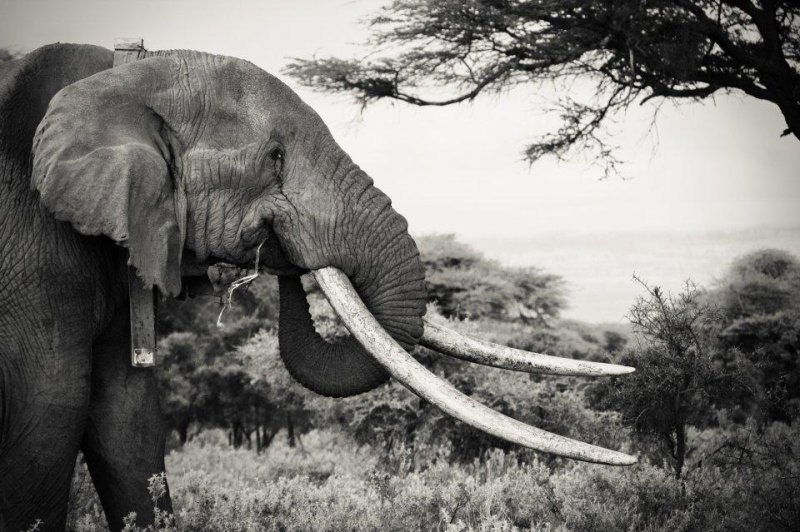Researchers tracked one bull, named Morgan, as he neared the Somali border, where poaching is common. As he neared danger, Morgan increased his nighttime activities and stayed hidden during the day. Photo by University of Twente
Sept. 13 (UPI) -- Fear is a powerful motivator. In parts of Africa, the fear of poachers has inspired new behavioral patterns among elephants.
When researchers from the University of Twente, in the Netherlands, analyzed data from the GPS collars of elephants in eastern Africa, they found elephants were more active at night in areas where the threat of poaching is greater.
The tracking project was carried out in partnership with conservation groups Save The Elephants and the Kenya Wildlife Service.
More than just revealing the power of fear, the new study -- published this week in the journal Ecological Indicators -- is a reminder of the elephant's impressive intelligence.
"This study shows the adaptability of earth's largest land mammal to adapt their behavior flexibly in order to stay safe," Save The Elephants' founder Iain Douglas-Hamilton said in a news release. "This alteration in movement behavior by elephants has implications for their foraging strategy, reproduction and survival, which are not yet fully understood."
Researchers tracked groups of elephants in northern Kenya from 2002 to 2012. Between 2002 and 2009, poaching levels were moderate, but beginning in 2010, the illegal ivory trade inspired an increase in poaching.
During the poaching crisis, between 2010 and 2012, GPS data shows elephants began increasingly migrating and feeding during nighttime hours. Poachers mostly operate during the day. Changes in behavior were most drastic among females, who are often more cautious when raising calves.
Though more cavalier, bull elephants showed increased caution in high-poaching areas, too. Worried researchers watched the movements of one bull, named Morgan, as he moved closer to war-ravaged regions near the Kenya-Somalia border. As he neared the border, Morgan upped his nocturnal activity and hunkered down in thick forest during the day.
While the findings reveal the ingenuity of elephants, they also raise questions about the mammal's longterm health, as they increasingly forego their natural sleep schedules to avoid human predation.
"The escalation of poaching has become the greatest immediate threat to the survival of elephants," said lead researcher Festus Ihwagi.















